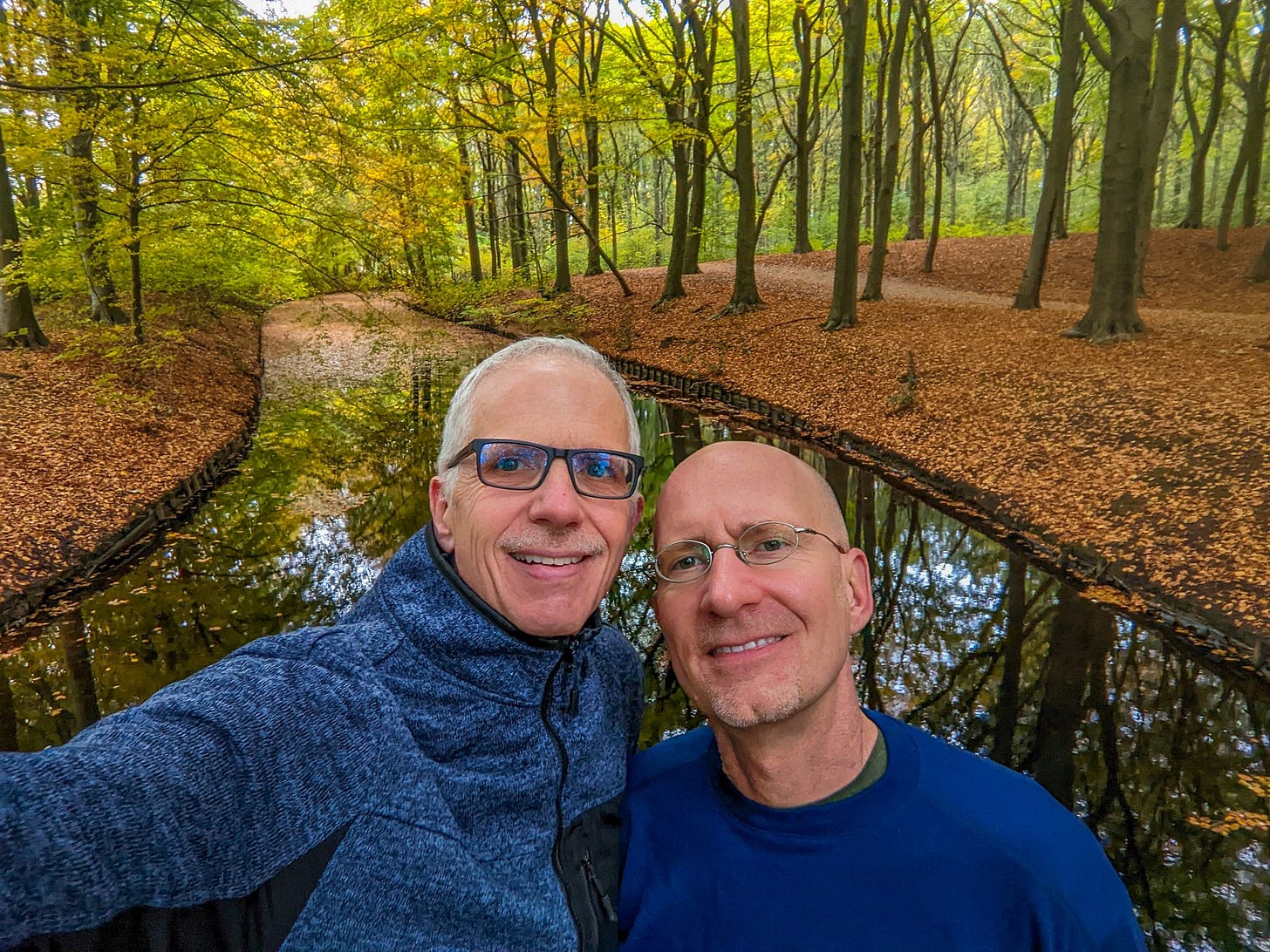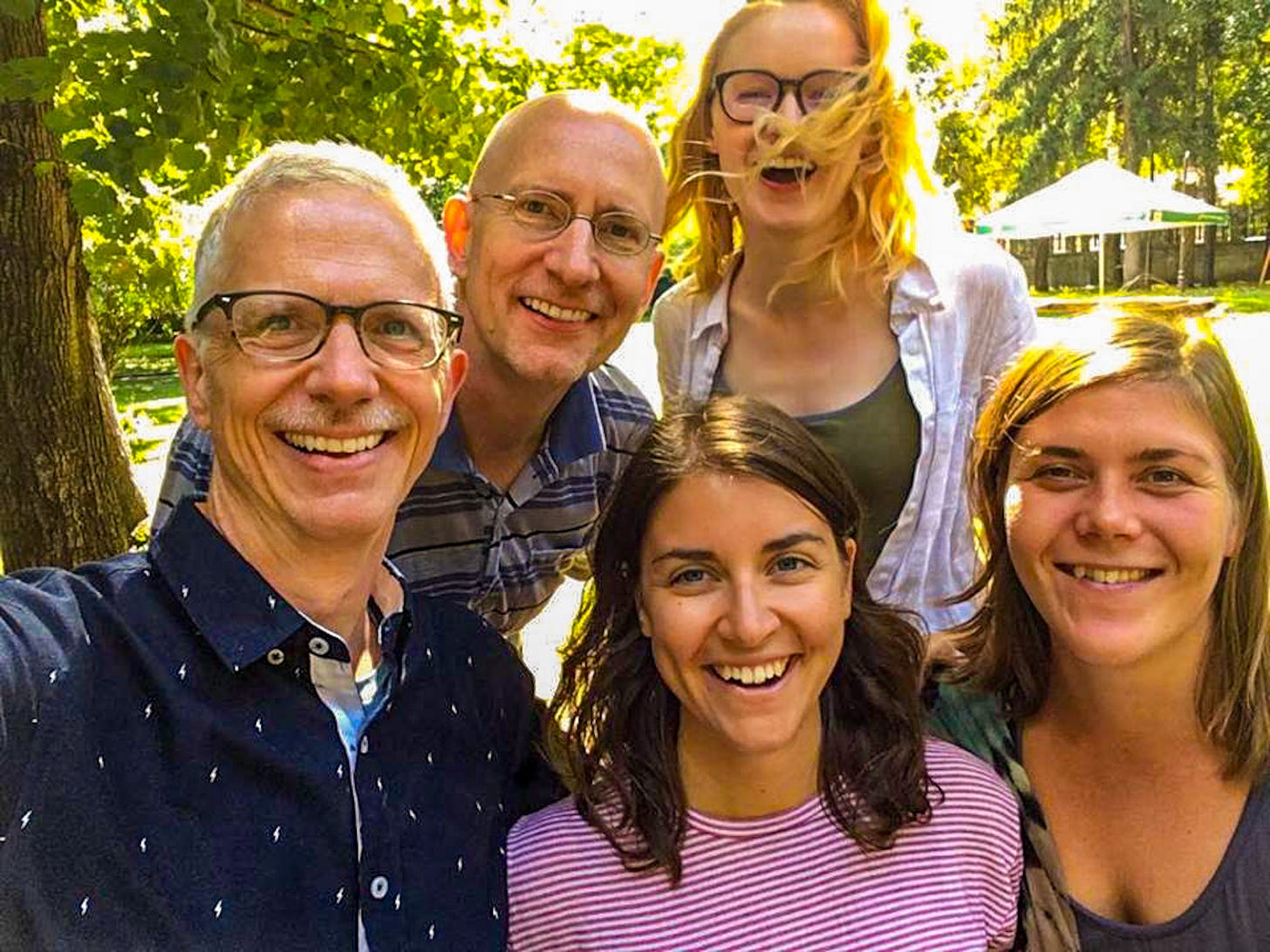The Truth About Our Finances
We could quit this newsletter and retire early, but we won't. It's partly about the money, but it's also the fact that people keep recognizing us on the street.
For the audio version of this article, read by the author, go here.
Michael and I could retire early if we wanted, but we’re not going to. We plan to continue writing this newsletter for at least a few more years.
Regular readers and our close friends know this, and they often ask us: “For the love of God, WHY?”
It’s a good question with an interesting answer, one that says something about a lot of contemporary issues: the nomadic lifestyle, the “creative” economy, FIRE and retirement in general, and what it’s really like to have a career in the arts.
It’ll probably also be of interest to nosy people simply curious about other folks’ finances — which, let’s face it, is just about all of us, including me.
The Story of Our Finances
Michael and I both planned on being writers of fiction from a young age — Michael writing novels and me writing novels and screenplays.
But unlike me, Michael had a plan: he became a flight attendant to pay his bills, which also gave him lots of layovers and downtime that he could use to write his novels.
My “plan” was to, well, write. I was so certain that I would soon be a big success that I didn’t think about a backup plan or even supporting myself.
But since I wasn’t making any money with my fiction, I quickly ended up writing practically everything else: freelance journalism, photo captions, greeting cards, even articles for a bunch of different porn magazines, not because anyone was reading the articles, but because if the magazines included articles such as mine, they were put in a different “category” and allowed to be sold on newsstands.
Michael and I met more than thirty years ago, when we were both in our mid-20s. But because Michael had that actual plan, he was making about $22,000 a year while I was making about $10,000.
Michael’s income gradually grew over the years until he was making about $50,000 a year.
Of course, my income grew too — to about $12,000.
Also, because I was self-employed, this meant no benefits and a “payroll” tax rate of 15%, not 7 1/2%.
There’s a reason I’ve become really good at stretching a dollar: I had to be.

Michael finally sold a couple of novels, and I started having some success with my novels and screenplays too — about fifteen years after I’d planned. I had good and bad years, but if I’m honest, even in my “good” years, I probably only made more money than Michael’s $50,000 once or twice.
Before I knew it, I was 40, and on one hand, I was proud of my resilience and determination in a career that was far more challenging than I had expected.
On the other hand, I had exactly zero dollars saved for retirement.
Around this time, Michael and I teamed up with some friends to found a website that did entertainment journalism, and within a couple of years, it had become surprisingly popular.
(I’m being deliberately cagey about names and details because — well, legal stuff.)
This was in the mid-00s, the era right before the rise of social media, when corporations believed all the money from the internet would come from online ads. And since our website was so successful, a big corporation wanted to buy the site and keep us on as editors.
The buyout was more money than we’d ever seen, and the annual salary was way higher than anything we’d earned before: $92,000 for Michael, and $30,000 for me (working part-time — I wanted to keep writing fiction).
Six years later, the corporation wanted the website “to go in a different direction,” and we were both unceremoniously fired.
Unfortunately, the corporation’s direction was to make the website really stupid, which all our readers hated. And there wasn’t ever any money to be made from online ads anyway, so they soon ended up shutting the whole thing down.
Anyway, during this period of our lives, Michael and I did three really important things, financially speaking — two of which were our choice, and one of which was just random chance.
We didn’t have kids.
We always lived way below our means. In fact, for the years after we got these editing jobs, we took my entire salary and put it into retirement accounts. And before we knew it — Voilà! I had money saved for retirement. And we packed some of Michael’s salary away too. Basically, we were doing “FIRE” before we’d even heard the term.
We happened to live in the Seattle area, where real estate prices were going CRAAAZY (due to Microsoft, Amazon, Costco, and Starbucks, which are all based in the area). We bought our first home, a condo, in 1996 for $78,000, and sold it four years later for $122,000. Then in 2000, we bought a house for $129,000, and sold it seven years later for $290,000. And then (after living with some friends for a year and a half in 2007-2008 while the real estate market collapsed), we bought a second house for $590,000 ($250,000 below its previous listing), and then sold that seven years later for $960,000.
By 2017, we weren’t rich (at least by Western standards), but we were also no longer poor.
On the other hand, we’d sold our house, and neither of us had high-paying jobs anymore. Michael was freelancing, and I was back to writing novels and screenplays — and still finding some success, especially with a series of self-published novels that did surprisingly well, making me about $130,000 over four years.
But the cost of living in Seattle had exploded along with the housing prices. Our annual expenses were about $85,000 (not counting taxes), and we had a substantial nest egg, but together, we were only making about $40,000 a year.
This was when we did something else really smart, even if we didn’t do it for financial reasons:
The Finances of Nomading
Nomading turned out to be so much less expensive than we expected.
Our first year, we spent $42,000 — less than half of what we’d been spending in Seattle, and, frankly, we were living more lavishly. In the second year, we spent $44,000.
To be fair, prices for travel are now rising dramatically all over the world — to the point where we spent $72,000 last year.
Then again, while neither of us has champagne tastes, we’re also living more comfortably than ever. We’ve recently loosened the purse strings even more, and this year, I’m sure we’ll spend at least $80,000.
If we’d stayed in Seattle, we estimate that our old, even-more-modest lifestyle would now probably cost at least $120,000.
But we can easily afford our new lifestyle — because of all the money we saved earlier, but also because in 2023, my father died, and there was an inheritance. It wasn’t necessarily life-changing, but it accounted for about 20% of our current total net worth.
Plus, recently, something else really interesting has happened:
This newsletter, which we began on a lark, started making us more money than we ever expected.
How much exactly?





